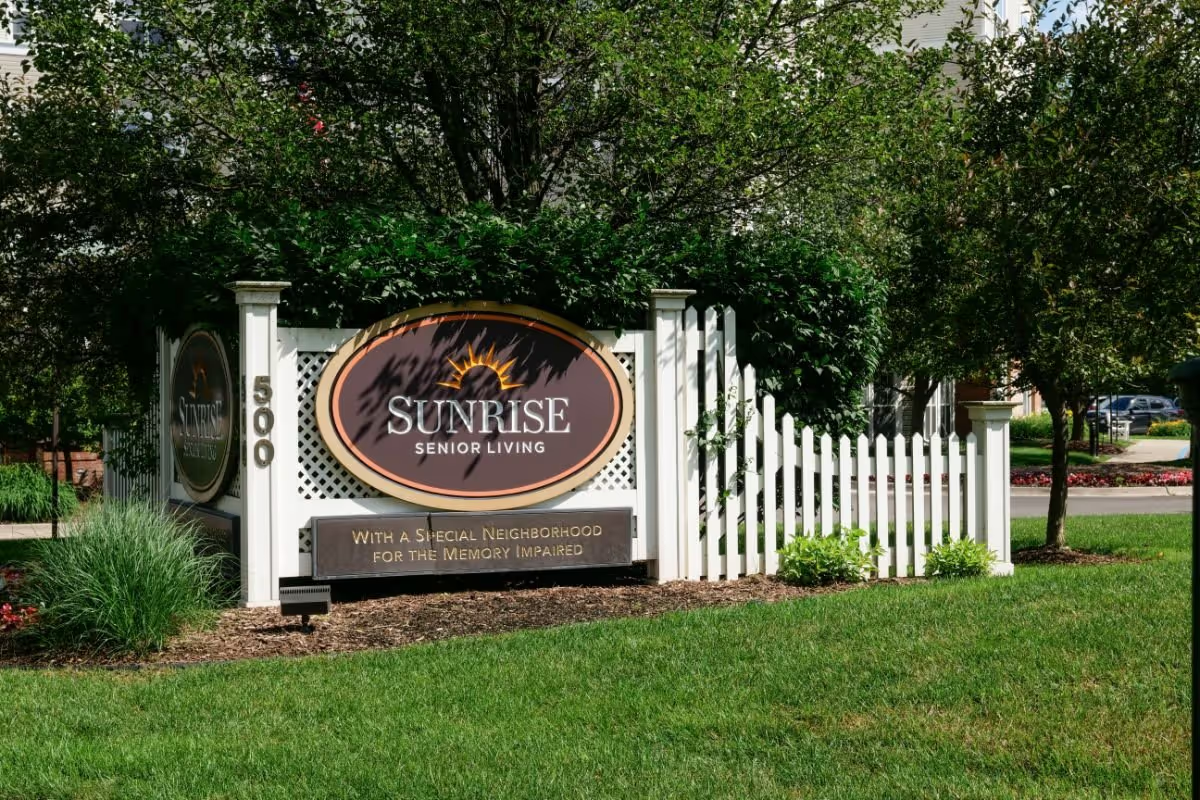Overall sentiment about Sunrise of Bloomingdale is strongly positive on matters of staff, atmosphere, cleanliness, and social life, but tempered by consistent concerns about price, some lapses in clinical/dementia care, and occasional operational problems. The dominant praise across reviews centers on the people: multiple families use words like caring, compassionate, warm, and family-like to describe caregivers, nurses, and activity staff. Many reviewers singled out individual employees (sales/marketing contacts and direct care staff) as instrumental in making transitions easier. The community's small size and mansion-like, homey architecture (Victorian styling, wrap-around porch, sunny common rooms) are repeatedly cited as creating a welcoming, non-institutional feel that residents and families appreciate.
Clinical support and day-to-day operations receive mixed but generally favorable comments. Several reviewers emphasize the presence of on-site nursing (including a 24/7 nurse or nursing station), weekly doctor visits, and attentive staff who know residents by name. Families report meaningful rehabilitation outcomes (physical therapy, weight gain) and timely assistance with activities of daily living when staffing levels permit. The memory care unit is described by some as impressive, separate, and safely equipped with grab bars and pull cords. At the same time, a notable subset of reviews report serious care breakdowns: medication administration for dementia patients was allegedly missed for extended periods (one account claims 8 weeks), inpatient hospital evaluations were required, and some families said geriatric psychiatric support promised or expected did not materialize. These contrasting accounts indicate variability in clinical reliability — many families experience excellent care, but a meaningful minority had lapses with significant consequences.
Dining, programming, and social life are recurring strengths. Reviewers praise a skilled chef, daily menus, snacks, and special events (monthly brunches, wine-and-cheese socials, Luau with entertainers). Activities range from bingo and movies to exercise classes, walking clubs, Wii bowling, field trips to parks/casinos/restaurant lunches, and frequent outings. The community is frequently described as socially engaging: residents eat together, participate in many activities, and appear visible and happy in common areas. That said, some reviewers want more meal variety, more evening programming, and better staff support for helping residents attend events (for example, assistance to Sunday mass or activity participation).
Facilities and practical features are generally praised but have trade-offs. Many reviews highlight well-kept common areas, attractive dining rooms, comfortable sunrooms and porches, accessible ground-floor units, daily housekeeping, and included laundry. Studio apartments with kitchenettes suit many residents, though some comment that rooms are smaller than expected and some second-floor studios are not fully wheelchair-friendly. Parking limitations, occasional plumbing problems, remodeling noise, and the community's smaller size (which is an advantage for personalization but can limit available rooms and lead to waits) are practical considerations noted by families.
Cost and contract/availability issues are consistent themes of concern. Sunrise of Bloomingdale operates as a private-pay community with a flat-rate and additional ala-carte charges; Medicaid is not accepted. Multiple reviewers flagged affordability as a major downside — some describing pricing as high or outrageous, noting income requirements, and warning that out-of-pocket charges could deplete funds needed for medications. Families frequently recommend verifying pricing details, what is included versus charged extra, and future financial implications. Availability constraints (limited rooms, sometimes only shared or less-desired units open) and the potential need to move again if care needs exceed what is offered are also mentioned.
There are a small but significant number of severe negative reports that prospective families should investigate further. Among these are accusations of poor infection control (a COVID exposure), unfulfilled promises around dementia medication and specialist access resulting in hospital admissions, and a single report of a prolonged bed bug infestation. Some reviewers also described a decline in care quality over time associated with staffing shortages or management issues, and others criticized inconsistent communication or unprofessional behavior from specific managers. Conversely, many families praise management, the admissions team, and individual staff members for exceptional support — illustrating variability in experience across time or by household.
In summary, Sunrise of Bloomingdale is widely praised for its caring staff, home-like setting, cleanliness, robust social programming, and attentive personal care when staffing is strong. Its small, Victorian-style community and active calendar are key draws for families seeking social engagement and a personal atmosphere rather than an institutional nursing-home model. Major cautions arising from reviews relate to cost (private-pay only, many additional charges), potential limits in clinical/dementia services (including bed availability on the memory unit and gaps in psychiatric/medication support reported by some), and occasional operational problems (staffing inconsistencies, infection-control concerns, and one severe pest report). Prospective residents and families should tour the community, verify current staffing ratios and clinical capabilities (especially for memory-care needs), clarify exactly which services are included versus extra-charge, confirm bed availability on the memory-care floor, and ask about any past infection or pest issues and how they were resolved before making a decision.







